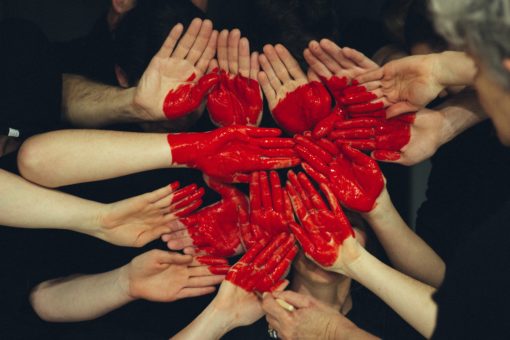
The caregiver archetype is one of the most important archetypes to develop. It should also be one of the first, but sadly, is often neglected through social conditioning.
People that have a dominant caregiver archetype as part of their personality armour typically feel fulfilled by helping others. They show compassion and empathy and know what to do in the right moments.
Individuals that do not do things for others need to develop the caregiver in them. Altruism has been shown to nurture personal well-being, reduce isolation, and increase a sense of belonging. These are emotional responses that help to lower the risk of depression.
However, altruism can also backfire. If you give too much energy to others and do not invest in a sufficient amount of time in yourself, you can easily find yourself overburdened and feeling resentful.
This is when rumination and ill feelings take over – which is not good for your mental or physical health,
Developing the caregiver archetype to a balanced and healthy level does not only involve taking care of others. You also have to take care of yourself.
Let’s take a closer look.
The principal quality of the caregiver archetype is self-love. When you love yourself you have the capacity to love others unconditionally. You also take good care of yourself, physically, mentally and emotionally.
A surprising number of people lack self-love. Even the narcissists you see posting selfies on Instagram every day and the body-beautiful fitness fanatics you see strutting around the gym.
You may think these types of people “love themselves” but underneath they are suffering from a lack of self-care. They were probably starved of love and compassion as a child.
Narcissism and body dysmorphia drives destructive behaviours such as pushing your body to its limits, taking steroids, bulimia etc. They are extreme cases but affect millions of people – 6.2 million people have reported bulimia in the United States alone.
Another reason for a lack of self-love might be because you feel unworthy or because you are not good enough. Comparing yourself to other people and constantly worrying about what people think of you are sure-fire traits of a negative caregiver archetype.
In my opinion, this is due to school. We’re programmed to compare our performance with others from an early age.

As a result, we become judgmental and critical of others to make ourselves feel better. We feel low and inferior when we do not match or better the achievements of others but can develop an overinflated ego when we outdo others.
Either way, comparing ourselves to others is destructive behaviour. Even if getting one over on someone makes you feel better, it can cause disharmony in your relationship with that person.
And the caregiver archetype involves nurturing relationships. Good social relationships cultivate positive emotional health.
The definition of compassion is an emotional response to another person’s suffering. Compassion can often be confused with empathy, but there is a slight difference.
Compassion is an instinct that has evolved as part of human nature. A growing body of research in the fields of neuroscience, evolutionary psychology, behavioural psychology and developmental science among others reveals that compassion is vital to good health and even to the survival of the species.
The Compassionate Institute suggests practising compassion increases feelings of happiness, calmness and self-acceptance. It also decreases anger, worry, anxiety and emotional suppression.
These are all qualities attributed to the caregiver archetype. Develop compassion towards others – but also remember to be compassionate towards yourself.
Like everybody else, you have made mistakes in your life. Mistakes are meant to be made so that you can expand your conscious awareness and develop your full potential.
So don’t be too hard on yourself.
Not everyone is empathetic. Whilst empathy is a built-in personality trait, a society designed to breed self-interest and egotism has crushed homo empathicus.
However, empathy is a habit that can be nurtured. Cultivation is also a quality of the caregiver archetype. This is made clear by one of the Mother Goddesses of the ancient Greeks; Demeter, goddess of the grain.
Neuroscientists have discovered our brains have an “empathy circuit”. When damaged, or inactive, we are unable to understand the feelings and perceptions of others.

On the flip side, empathetic people intuitively feel the emotional state of the other person and use that understanding to guide their actions.
An article published by Roman Krznaric suggests adopting six habits to cultivate empathy.
Caregivers are dependable, generous, caring and offer encouragement. These altruistic qualities need to be developed to cultivate this archetype – but they must be performed with a genuine desire to help.
However, there is a downside to altruism – you can overburden yourself, and many of us do. We find ourselves helping others because we feel obligated or want to be liked.
Eventually, you will take on more duties than you can handle, and as a consequence, you neglect yourself. Then you will see a different side of the caregiver archetype. She becomes resentful and develops a victim mentality.
Another negative quality you should look out for is a feeling of guilt. If you feel guilty that you can’t help someone, even if it’s physically impossible for you to do so, the root course of your negative caregiver archetype is a lack of self-esteem and feelings of inadequacy. See this article on the inferiority complex.
Archetypal energies are powerful tools that help determine which unconscious energies are trying to break through into your conscious thinking. Master Mind Content has developed a healing program that shows you how to recognise archetypal energies and adjust your thoughts, actions and emotions accordingly. With these tools, you will be able to release repressed consciousness, develop your personality and upgrade your subconscious programs with energies that deliver a better quality experience of life.
